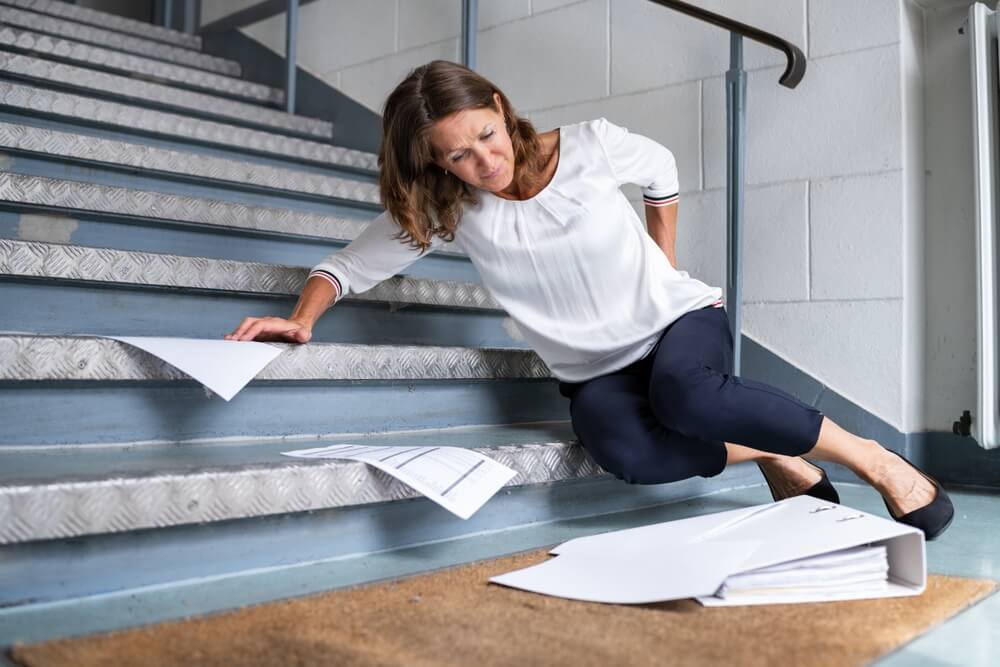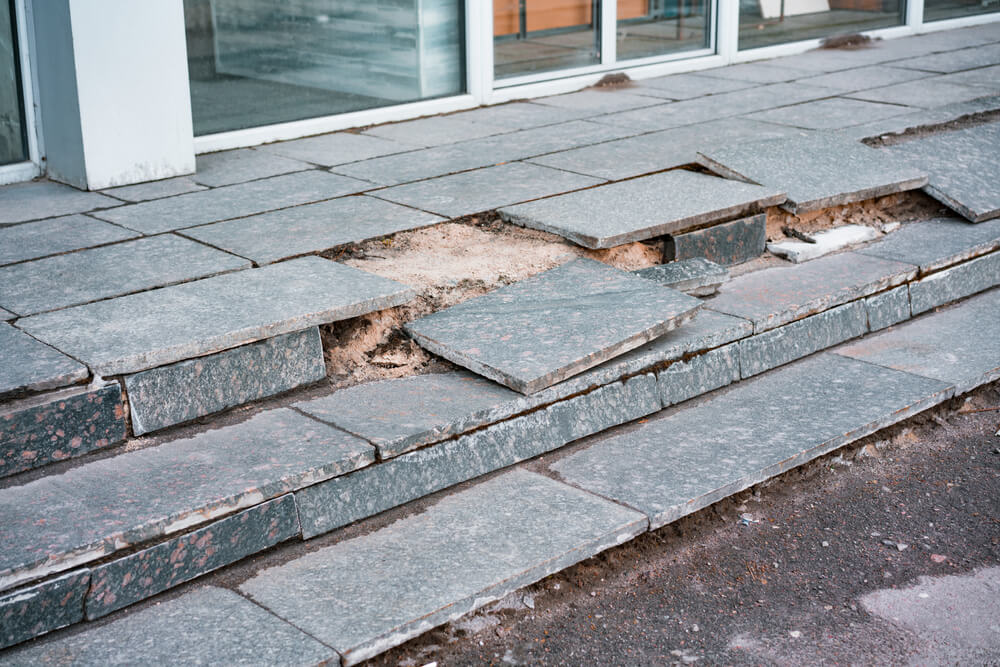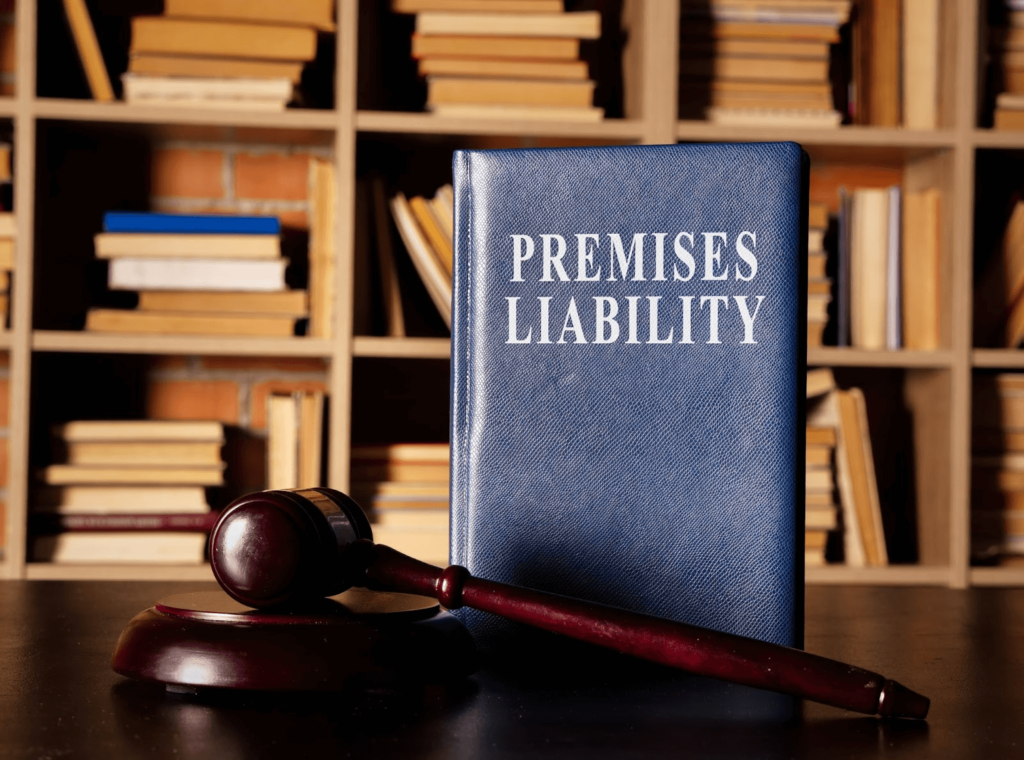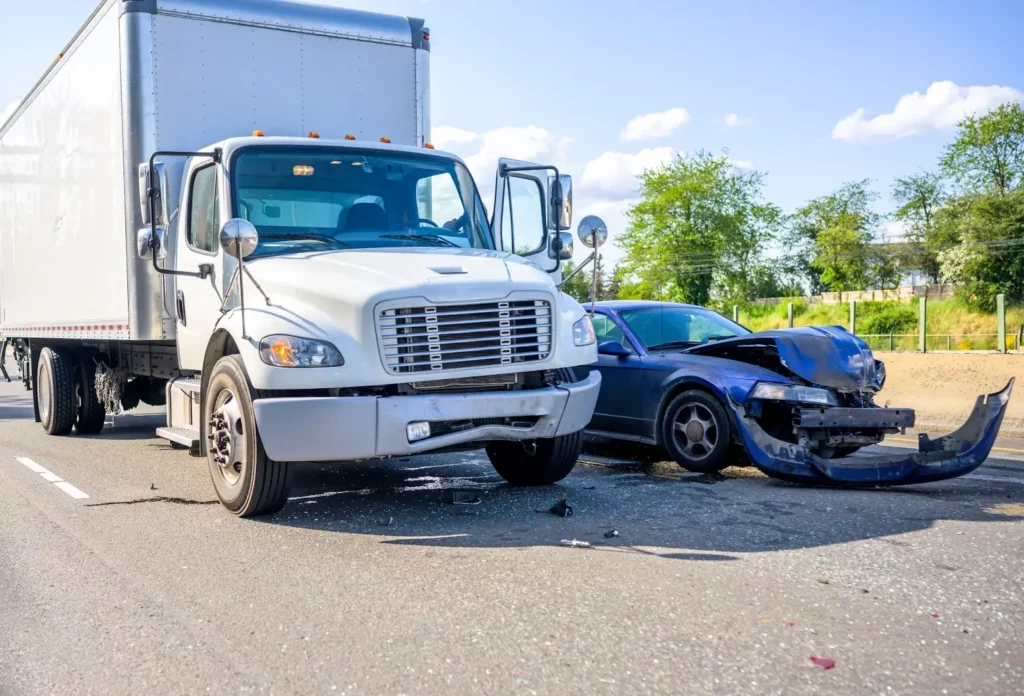Imagine walking into a store, slipping on an unseen hazard, and injuring yourself – a situation that’s not only painful but also laden with legal complexities. That’s where premises liability law comes into play, outlining the property owner’s responsibility to ensure safety. In Houston, Texas, knowing the ins and outs of this law is crucial for anyone seeking justice for such injuries.
What is Premises Liability?
Premises liability law is rooted in the principle of responsibility. It demands that those who own or control property must maintain it in a condition that is safe for those who visit. This duty encompasses a wide range of potential issues that might otherwise put visitors at risk.
For instance, if a diner at a restaurant trips over a torn carpet edge that should have been repaired or adequately marked, premises liability law can come into play. The law assesses the property owner’s actions against what is reasonably expected to ensure safety. If a property owner neglects a loose step that leads to a fall, or if a child is injured because a fence around a swimming pool is inadequate, these situations fall under the umbrella of premises liability.
How Does Premises Liability Work in Texas?
In Texas, premises liability cases hinge on the concept of negligence. Property owners must take reasonable care to secure their property. If they fail to do so and someone gets hurt, they could be legally responsible for the resulting injuries and damages.
- Negligence as the Basis: Texas law requires property owners to avoid negligence by taking reasonable care of their premises.
- Reasonable Care Defined: Owners must foresee potential dangers and act to prevent them. This includes regular property inspections, prompt repair of known hazards, and adequate warnings to visitors about existing dangers.
- Assessment of Knowledge: The law examines whether the owner was aware, or should have been aware, of the danger.
- Liability for Inaction: If an owner fails to address potential dangers, they may be held responsible for any resulting injuries.
- Modified Comparative Fault: Texas uses this rule to determine damages. An injured party can be found partially responsible for their injury, which can affect compensation.
- Threshold for Recovery: An injured person’s compensation is reduced by their percentage of fault unless they are more than 50% responsible, in which case they may be barred from recovery.
Texas Premises Liability Statute of Limitations
In Texas, the law sets a firm deadline for filing a premises liability lawsuit: you have two years from the date of the incident to take legal action. This statute of limitations is a rigid cut-off point.
If you miss this deadline, you typically lose the opportunity to pursue your claim in court. It’s a crucial aspect of the legal process designed to ensure that cases are brought to attention while evidence is still fresh and recollections of the incident are clear. This timeframe underscores the importance of consulting with a premises liability lawyer as soon as possible after an injury occurs on someone else’s property.
Examples of Premises Liability Cases

Examples of premises liability cases illustrate the range of incidents that can occur when property owners fail to uphold safety standards. In Texas, as elsewhere, these cases are not limited to simple accidents but can also include more complex situations where a lack of security measures plays a role.
Here’s a closer look at a few scenarios:
Slip and Fall Incidents
A classic example of a premises liability case is when someone slips and falls due to unmarked wet floors. If a grocery store neglects to place warning signs around a spill and a customer is injured as a result, the store could be held liable.
Injuries from Falling Objects
Retail stores must ensure that items are safely stored and shelved. If an object falls and injures a shopper because it wasn’t secured properly, the store may be responsible for the injury.
Electrocution Hazards
Rental properties must be maintained to prevent electrical hazards. If a tenant or visitor suffers electrocution due to exposed wiring that the landlord has failed to repair, this could constitute a premises liability claim.
These examples serve as a reminder that property owners and managers have a legal duty to maintain a safe environment and that failure to do so can have serious legal repercussions.
Most Common Types of Premises Liability Lawsuits
When it comes to premises liability lawsuits, certain types of claims are filed more frequently than others.
Here’s a more detailed look at the most common categories:
Slip and Fall Incidents
These cases often top the list of premises liability lawsuits. They occur when an individual encounters an unsafe condition, such as a spill that hasn’t been cleaned up or a recently mopped floor missing a caution sign. The resulting injuries from these falls can range from minor bruises to severe fractures or head injuries, prompting legal action to seek compensation for medical bills, lost wages, and other damages.
Injuries from Defective Conditions
Claims also frequently arise from injuries caused by structural defects. This can include things like a broken stair that gives way when stepped on, a loose floorboard that causes a trip, or a malfunctioning gate that closes unexpectedly. These defects might be a result of poor design, substandard construction materials, or a failure to address wear and tear. The property owner’s knowledge of such defects and their inaction can be the basis for a lawsuit.
Accidents Due to Inadequate Maintenance
A well-maintained property is less likely to be the subject of a premises liability lawsuit. Unfortunately, not all property owners adhere to this principle. Elevators that suddenly drop due to neglected service, escalators that jolt because of overdue repairs, or playground equipment that breaks due to aging materials are all examples of inadequate maintenance that can lead to accidents. When such negligence results in harm, affected individuals may seek legal recourse.
Who Can I Sue if I’m Injured on Someone Else’s Property in Houston, TX?

If you find yourself injured on someone else’s property in Houston, TX, the question of who can be held responsible is not always straightforward. The liability can extend to various parties, depending on the circumstances surrounding your injury.
Here’s a closer look at potential defendants in such cases:
Property Owner
The most obvious candidate for a lawsuit is often the property owner. They are typically responsible for ensuring the safety of the property. If your injury was due to a condition that the owner should have known about and addressed, such as a loose floor tile or a faulty stair, they could be liable.
Business Operator
If your injury occurred in a commercial setting, like a store or restaurant, the operator of that business might be liable. This is particularly the case if the business had control over the area where the injury occurred and if they were negligent in maintaining a safe environment.
Maintenance Companies
Sometimes, the responsibility for safe conditions is contracted out to third-party companies. If a maintenance or cleaning company failed to uphold their duties, leading to your injury, they could be named in a lawsuit. For instance, if a cleaning company left a wet floor without signage and you slipped, that company could be responsible.
Property Management Firms
In some cases, especially in larger commercial or residential properties, a management firm may be in charge of the property’s upkeep. If the management failed to address a known hazard, they might be held liable.
Tenants or Lessees
There are also instances where a tenant or lessee who has control over the property, or a part of it, can be sued. For example, if you were injured in a leased commercial space due to the tenant’s negligence, they could be the appropriate party to sue.
It’s important to note that determining liability can be complex and may involve multiple parties. Consulting with a premises liability lawyer who is well-versed in Texas law can help clarify who can be held accountable and assist in pursuing a claim for your injuries.
When Is a Houston Property Owner Liable for Accidents?
A property owner in Houston can be held responsible for an accident if it’s proven that they were negligent, such as not repairing a known danger that leads to someone’s injury. Liability hinges on whether the owner was aware or should have been reasonably aware of the unsafe condition but did nothing about it.
In essence, if a property owner overlooks a reported leak causing a slip and fall, or ignores a broken step that later causes someone to trip, they could be found liable for any injuries that occur due to such oversight.
How Do You Prove Premises Liability?
To prove premises liability, you must demonstrate the owner’s negligence led to the hazardous condition that caused your injury. This could involve showing that they were aware of the problem and didn’t act to prevent harm.
Here’s a breakdown of what that entails:
Demonstrate the Property Owner’s Awareness:
- Gather any existing reports or complaints that highlight the owner was aware of the danger.
- Look for email correspondences or maintenance requests that show the problem was known.
Show the Lack of Corrective Action:
- Find maintenance records that indicate no repairs were made.
- Provide photos showing the absence of warning signs or barriers to prevent access to the dangerous area.
Connect the Hazard to the Injury:
- Document the incident thoroughly to show how the injury was directly caused by the hazard.
- Collect statements from witnesses who saw the accident, supporting the link between the hazard and the injury.
Compile Evidence:
- Obtain copies of any incident reports filed with the property owner or manager.
- Request maintenance logs that might reveal a pattern of neglect.
- Get written testimonies from employees or witnesses who were aware of the ongoing risk.
- Take clear, date-stamped photos or videos of the hazardous condition.
- Secure medical documentation that clearly outlines the injuries sustained as a result of the accident.
This evidence collectively can help to form a strong argument that the property owner was negligent, which is essential in a premises liability claim. The more comprehensive and detailed the evidence, the clearer it will be that the property owner failed in their duty to provide a safe environment, leading to the injury.
Damages in Premises Liability Cases
In the legal context of premises liability cases, the term ‘damages’ refers to the various types of financial compensation that an injured individual is entitled to receive. These damages are designed to cover the cost of medical treatment, reimburse for any income lost due to the inability to work, and compensate for the physical pain and emotional distress suffered as a result of the injury.
In situations where the property owner’s negligence is particularly severe, the court may impose punitive damages. These are intended not only to penalize the responsible party but also to act as a deterrent, preventing such negligence in the future. The overall purpose of awarding these damages is to ensure that the injured party is restored, to the fullest extent possible, to the financial and personal position they were in prior to the incident.
Why You Need an Experienced Houston Premises Liability Lawyer

An experienced lawyer can navigate the complex legal terrain of premises liability, ensuring that your rights are protected and you get the compensation you deserve.
Expert Knowledge of State Laws
Texas premises liability laws are intricate and can vary significantly from those of other states. A seasoned lawyer will have a comprehensive understanding of these laws and how they apply to your specific case, ensuring that all filings are in accordance with state-specific statutes and regulations.
Skillful Case Building
An experienced attorney knows how to compile a compelling case by gathering necessary evidence, securing expert witness testimony, and constructing a solid argument that demonstrates the property owner’s negligence.
Negotiation with Insurance Companies
Insurance companies often aim to minimize payouts. A lawyer with a track record in premises liability will be adept at negotiating with these companies to pursue a settlement that fully covers your medical bills, lost wages, and other damages.
Litigation Experience
If your case goes to trial, having a lawyer who is well-versed in courtroom procedures and experienced in litigating premises liability claims will be invaluable. They can effectively present your case and advocate on your behalf, which is crucial in seeking a favorable verdict.
How to Interview a Premises Liability Lawyer
When sitting down with a potential premises liability lawyer, it’s essential to conduct a thorough interview to ascertain they’re the right fit for your case. Start by delving into their specific experience with premises liability—this area of law is nuanced, and you want someone who knows it inside out. How many cases like yours have they handled? What outcomes did they achieve? This gives you a gauge of their expertise.
Next, discuss their success rate with past cases. This will offer you a glimpse into their ability to secure favorable settlements or judgments. Then, talk strategy. A competent lawyer should provide a clear plan of action tailored to your case’s particulars and how they intend to navigate any challenges that may arise.
Finally, assess their communication skills. It’s vital that you feel confident in their ability to advocate for you and that they will keep you fully apprised as your case progresses. After this discussion, you should have a clear picture of whether the lawyer is well-suited to represent you effectively.
Tips for Finding the Best Premises Liability Lawyer in Houston, TX
When you’re on the lookout for a top-notch premises liability lawyer in Houston, TX, it’s wise to keep the following tips in mind:
- Specialization in Premises Liability: Prioritize lawyers who specialize in premises liability. Their focused experience can be a decisive factor in the complexity of personal injury law.
- Successful Case History: Research their professional history for a pattern of success in premises liability cases. A consistent track record is a good indicator of their expertise and effectiveness.
- Client Testimonials: Check for reviews or testimonials from past clients. Positive feedback can signal a lawyer’s commitment to client satisfaction and legal excellence.
- Communication: Choose a lawyer who communicates clearly and promptly. A lawyer who listens and explains legal terms in understandable language will be valuable throughout your case.
- Professional Reputation: Consider their standing in the legal community. Endorsements from peers and professional associations can highlight a lawyer’s competence and ethical standards.
- Trial Experience: Ensure they have substantial trial experience, in case your claim proceeds to court. A lawyer who is confident in the courtroom can be a powerful advocate for your rights.
- Initial Consultation: Take advantage of a free initial consultation, if offered, to gauge their understanding of your case and to see if they’re a good fit for you personally.
- Approachability: You want a lawyer who is approachable and compassionate. Filing a lawsuit can be a stressful process, and you need someone who can guide you with patience and understanding.
Remember, the right lawyer will not only have the knowledge and experience to handle your case but also the dedication to pursue the best possible outcome for you.
What Compensation Can I Receive For A Premises Liability Claim?
If you file a premises liability claim, you could receive compensation to cover not just your immediate costs but also your ongoing needs. This includes all your medical bills—emergency treatment, surgeries, medication, physical therapy, and any long-term care required for your recovery. You’re also entitled to recover wages for the time you’ve had to take off work due to your injury, as well as any future earnings you might lose if your injuries prevent you from returning to your previous job or working at all.
Beyond the tangible losses, compensation can also address the more personal impacts of your injury. This means you could be compensated for the physical pain and emotional distress experienced, as well as for any decrease in your quality of life if you’re no longer able to engage in activities or hobbies you once enjoyed.
In cases of extreme negligence, punitive damages might also be awarded, serving both as punishment to the property owner and as a deterrent against similar future conduct. It’s crucial to have a lawyer who can guide you through the process of claiming these damages to ensure you get the support you need to move forward.
Taking Action: Partnering with a Premises Liability Expert in Houston
Dealing with an injury that happened on someone else’s property can be overwhelming, but you don’t have to face it alone. A competent premises liability lawyer can offer you the guidance and support you need. In a city like Houston, with its myriad environments and bustling activity, the right premises liability attorney is crucial.
Firms like Lakhani & McGrath PLLC specialize in understanding the specific details of premises liability law, which is essential when handling the complexities of such cases. They have personal injury lawyers in Houston who are experienced in dealing with all sorts of premises liability injuries, from the straightforward to the complex.
Whether your case is a textbook example of a slip and fall or involves intricate premises liability accidents, a knowledgeable law firm can be instrumental in helping you navigate the legal maze and secure the compensation you’re entitled to. Reach out to a seasoned premises liability law firm in Houston and set the wheels in motion for your recovery, both physically and legally.




